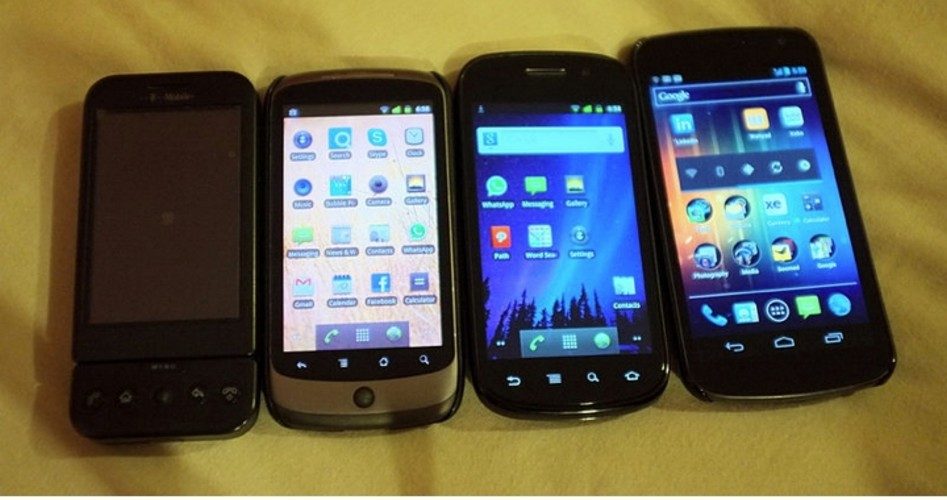
A recent “improvement” to the Facebook mobile app is being praised by tech bloggers, but it seems the bigger, more sinister side of the upgrade is being ignored.
In the “coming weeks,” the social media behemoth will roll out a service that, according to an announcement on its blog, will give users:
the option to use your phone’s microphone to identify what song is playing or what show or movie is on TV.
That means if you want to share that you’re listening to your favorite Beyoncé track or watching the season premiere of Game of Thrones, you can do it quickly and easily, without typing.
Certainly, as the company claims, that is a handy little tool for recording the sounds entering into a smartphone’s microphone with nearly no human interaction required.
There is something disturbing in the potential uses of this option, however. The frightening application of the app is, accidentally it seems, explained in a Huffington Post article promoting the technology: “Facebook Can Now Listen To Everything You Listen To.”
It seems that’s true, and there’s the rub.
For a little context, consider the information in this story published two years ago in The New American regarding a liberty-jarring decision handed down by the notorious Ninth Circuit Court of Appeals:
In its decision, the Ninth Circuit has upheld the lower court’s ruling, essentially allowing the federal government to convert cellphones into “roving bugs” so long as the government makes it clear that it will be using the target’s cellphone in that manner. Notice, the Ninth Circuit — a court created under the authority granted to Congress in Article III of the Constitution — did not throw out the matter as a violation of the defendant’s Fourth Amendment right against “unreasonable searches and seizures.” Instead, it simply informed the government that it needs to get permission before doing so.
There are, of course, far-reaching implications of such a decision. As The New American has reported, a person will not know, and perhaps will never know, if he has been the target of surveillance on the part of the federal government. Assuming, as many a savvy American would, that the federal government is liable to eventually want to monitor and record your personal electronic communication, is there not an expectation that when the cellphone is off the surveillance is suspended?
Not anymore. In the wake of the Ninth Circuit’s ruling in Oliva, “roving bugs” are likely to become a favorite weapon in the ever expanding arsenal of the surveillance state. A person’s expectation of privacy when sitting at home talking to a friend is ridiculous in the face of the judicially upheld fact that government snoops may now use powerful surveillance technology to use your idle mobile phone as a very active mobile microphone.
Some of the dictum in the Oliva decision is almost as disturbing as the ruling itself. For example, in one part of its discussion of the various technological tools available to federal agents, the court describes how one such advance allows the agents to remotely upload software into a target’s cellphone that converts it into the “roving bug” mentioned above. Again, this sort of power is undoubtedly only the tip of the surveillance iceberg.
While admittedly this has nothing to do with Facebook’s forthcoming rollout of its sound-identifying upgrade, it is indicative of the power government can exercise — with judicial go-ahead — over the sounds passively vacuumed up by smartphones. The Facebook feature will record everything without user manipulation, a situation that sounds eerily similar to the type of surveillance declared “constitutional” by the Ninth Circuit.
In fairness to Facebook, the blog post cited above claims that “no sound is stored” on Facebook servers. Users would be excused for not exactly taking the company at its word when it comes to promises of privacy.
Furthermore, under the PRISM program, the NSA and the FBI are “tapping directly into the central servers of nine leading U.S. Internet companies, extracting audio, video, photographs, e-mails, documents and connection logs that enable analysts to track a person’s movements and contacts over time,” as reported by the Washington Post.
The joint venture has been functioning since 2007, but came to light only in a PowerPoint presentation that was part of the cache of documents leaked by NSA whistleblower Edward Snowden.
Snowden claimed that the program was so invasive that “They [the NSA and the FBI] quite literally can watch your ideas form as you type.” According to the information Snowden released, Facebook cooperated with the snoops and gave the government access to the private information of millions of users.
This isn’t to suggest that there is a direct correlation between Facebook’s new sound recording feature and PRISM or the NSA’s quest to gobble up all electronic and digital communication and store them in vast mountain server farms. What it does point to, however, is the potential for unconstitutional surveillance such a service could be in the hands of the federal government, particularly in light of Facebook’s historical cooperation with it.
Facebook will offer the “upgrade” to Android and iOS users any day now.
Joe A. Wolverton, II, J.D. is a correspondent for The New American and travels nationwide speaking on nullification, the Second Amendment, the surveillance state, and other constitutional issues. Follow him on Twitter @TNAJoeWolverton and he can be reached at [email protected].


